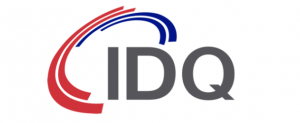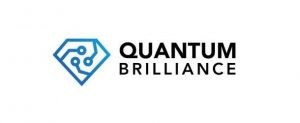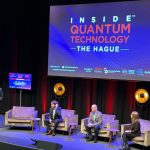Quantum News Briefs March 14: High-performance photon detectors to combat spies in the quantum computing age; How “quantum ready” are German companies? Quantum Brilliance launched software suite enabling exploration of applications with miniature quantum computers + MORE

Quantum News Briefs March 14: High-performance photon detectors to combat spies in the quantum computing age; How “quantum ready” are German companies? Quantum Brilliance launched software suite enabling exploration of applications with miniature quantum computers + MORE
High-performance photon detectors to combat spies in the quantum computing age

Quantum physics’ theories make it possible to encode information (a qubit) in single particles of light (a photon) and to circulate them in an optical fiber in a highly secure way. However, the widespread use of this telecommunications technology is hampered in particular by the performance of the single-photon detectors.
A team from the University of Geneva (UNIGE), together with the company ID Quantique (IDQ), has succeeded in increasing their speed by a factor of twenty. This innovation, published in the journal Nature Photonics, makes it possible to achieve unprecedented performances in quantum key distribution.
By integrating not one but fourteen nanowires into their detector, the researchers were able to achieve record detection rates. “Our detectors can count twenty times faster than a single-wire device,” explains Hugo Zbinden. “If two photons arrive within a short time in these new detectors, they can touch different wires and both be detected. With a single wire this is impossible.” The nanowires used are also shorter, which helps to decrease their recovery time.
RELATED: ID Quantique (IDQ) is a Gold Sponsor for IQT The Hague Conference & Exhibition March 13-15
Using these sensors, scientists were able to generate a secret key at a rate of 64 megabits per second over 10 km of fiber optic cable. This rate is high enough to secure, for example, a videoconference with several participants. This is five times the performance of current technology over this distance. As a bonus, these new detectors are no more complex to produce than the current devices available on the market.
These results open up new perspectives for ultra-secure data transfer, which is crucial for banks, health care systems, governments and the military. They can also be applied in many other fields where light detection is a key element, such as astronomy and medical imaging. Click here to read the Phys.org article in-entirety.
How “quantum ready” are German companies?
 In a recent study, Dr Daniel Zeuch from Forschungszentrum Jülich investigated how “quantum-ready” German companies are and how to support the development of strategies for entering the market. Quantum News Briefs summarizes.
In a recent study, Dr Daniel Zeuch from Forschungszentrum Jülich investigated how “quantum-ready” German companies are and how to support the development of strategies for entering the market. Quantum News Briefs summarizes.
For his analysis, Dr Daniel Zeuch spoke with more than 100 entrepreneurs and employees over the past two years. Dr Zeuch explained, “We wanted to find out in our study whether small and medium-sized enterprises, or SMEs for short, could also be involved in the development of components and algorithms or software. In addition to collaborative efforts we also wanted to find out to what extent the companies are currently aware of this topic. For example, some companies could already take advantage of quantum computing by selling certain hardware components. In this regard, we conducted information and consultation interviews with 26 companies, for the most part by telephone or via video calls.”
In the report, the research team created a so-called quantum score for all SMEs. This also shows that hardware suppliers are currently still closer to quantum computing than potential users.
Dr. Zeuch shared, “One should distinguish between companies that are regarded as users and suppliers. Some suppliers are, as I said, already in business. For others, it is possible to get in rather quickly. And, of course, the situation is very different when it comes to the application of quantum computers. Reliable predictions for gaining clear computing advantages are not yet available. This is one reason why potential users are still quite reluctant. Nevertheless, as we have been able to observe in discussions, there is also a great deal of interest here to some extent in getting to grips with the topic. The prospect that quantum computers can deliver exponential computational advantages for certain problems was often perceived as a strong argument. It is no coincidence that technology companies such as Google, IBM or Amazon are pouring vast sums of money into this field.
Interested companies are welcome to contact Dr Zeuchat. He currently works at the Institute for Quantum Computer Analysis (PGI-12), where he plays a transfer role between the Forschungszentrum Jülich and industry, associations, government institutions and our guests. Forschungszentrum Jülich also pursues various approaches to strengthen contact with industry, including SMEs, in the field of quantum computing. One example of this is the state-wide network “EIN Quantum NRW”, to which more than a dozen research institutions in NRW joined last year in order to network together with companies from industry. Another example is the planned Center for Quantum Systems and Engineering, or CQSE for short, in which Forschungszentrum Jülich together with the Fraunhofer Institute for Laser Technology ILT in Aachen intend to advance quantum technologies in the Rhineland. Click to read the original interview in-entirety.
Quantum Brilliance launched software suite enabling exploration of applications with miniature quantum computers
 Quantum Brilliance, recently announced the launch of its Qristal software suite, enabling R&D teams to explore integrating quantum systems in real-world applications in a critical step towards practical utility of the technology. Quantum News Briefs summarizes a recent news announcement.
Quantum Brilliance, recently announced the launch of its Qristal software suite, enabling R&D teams to explore integrating quantum systems in real-world applications in a critical step towards practical utility of the technology. Quantum News Briefs summarizes a recent news announcement.With Qristal, developers and researchers can now develop and test novel quantum algorithms specifically designed for quantum accelerators rather than quantum mainframes. Within the suite, the Qristal Emulator enables users to determine the number of qubits that will be required to outperform classical computers in hybrid classical/quantum applications in data centres, aerospace, autonomous vehicles, mobile devices and more.
“Qristal provides a powerful tool for developers and researchers in any field to explore the quantum utility or ‘usefulness’ of our quantum accelerators,” said Mark Luo, CEO and co-founder of Quantum Brilliance. “Our software suite can help people discover for themselves that quantum computers don’t need to outperform supercomputers to provide value, moving the technology out of the lab and into practical solutions sooner.
”With full integration of C++ and CUDA features, Qristal users will have the ability to create high performance software for production, testing on realistic models of the Quantum Brilliance’s diamond-based quantum accelerators. Qristal also supports the development of embedded software and will soon be incorporating support for Nvidia’s QODA, making it a versatile solution for quantum computing research.
Additionally, the software uses MPI, the global standard for large-scale parallel computing, to enable exploration of potential applications of parallelized room-temperature quantum accelerators in high-performance computing (HPC) deployments.
“As an experienced quantum chemist but a relative newbie to quantum computing, I was impressed by the user experience and high-level abstractions of the Qristal SDK,” said Dr. Marco De La Pierre, supercomputing application specialist at the Pawsey Supercomputing Centre and a Qristal beta user. “I could set up and run my own quantum chemical simulations through Qristal with almost no knowledge of quantum circuits, quantum gates and other low-level quantum computing jargon.”
Opinion: Europe must increase support for quantum software development
Sandra K. Helsel, Ph.D. has been researching and reporting on frontier technologies since 1990. She has her Ph.D. from the University of Arizona.







 Andris Ambainis is the author of a March 6 opinion piece in
Andris Ambainis is the author of a March 6 opinion piece in 











